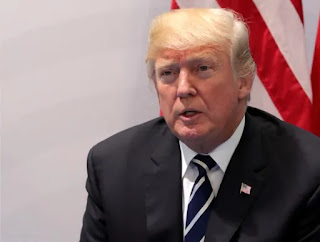On Monday, the intelligence community inspector general (ICIG) admitted that it did alter its forms and policies governing whistleblower complaints, and that it did so in response to the anti-Trump complaint filed on Aug. 12, 2019. The Federalist first reportedthe sudden changes last Friday. While many in the media falsely claimed the ICIG’s stunning admission debunked The Federalist’s report, the admission from the ICIG completely affirmed the reporting on the secretive change to whistleblower rules following the filing of an anti-Trump complaint in August.
The ICIG also disclosed for the first time that the anti-Trump complainant filed his complaint using the previously authorized form, the guidance for which explicitly stated the ICIG’s previous requirement for firsthand evidence for credible complaints. The Federalist reported last week that it was not known which form, if any, the complainant used, as the complaint that was declassified and released to the public last week was written as a letter to the two chairmen of the congressional intelligence committees.
Under the law governing whistleblower complaints for members of the intelligence community, the inspector general has near-total authority to determine whether a complaint is credible or not. The law is silent on what type of evidence is required and leaves that decision entirely to the discretion of the inspector general. As a result, the internal policies set by the ICIG’s office are the regulatory rules governing the examination of whistleblower complaints. Because of this wide discretion granted under the law, the ICIG’s internal changes to its own policies and guidance regarding firsthand evidence — which the ICIG admitted to in its press release on Monday — directly impacted its treatment of the anti-Trump complaint filed in August.
In its press release, the ICIG also explicitly admitted it changed its policies because of the anti-Trump complaint, raising significant questions about whether the watchdog cooked its own books to justify its treatment of the anti-Trump complaint:
In the process of reviewing and clarifying those forms, and in response to recent press inquiries regarding the instant whistleblower complaint, the ICIG understood that certain language in those forms and, more specifically, the informational materials accompanying the forms, could be read — incorrectly — as suggesting that whistleblowers must possess first-hand information in order to file an urgent concern complaint with the congressional intelligence committees.
The ICIG’s claim that it would have been incorrect to perceive a requirement for firsthand information is bizarre considering the previous version of the form clearly stated in unambiguous language that firsthand evidence was required in order for “urgent concern” whistleblower complaints to be deemed credible. It said, in bold, underlined, all-caps text, “FIRST-HAND INFORMATION REQUIRED”:



No comments:
Post a Comment